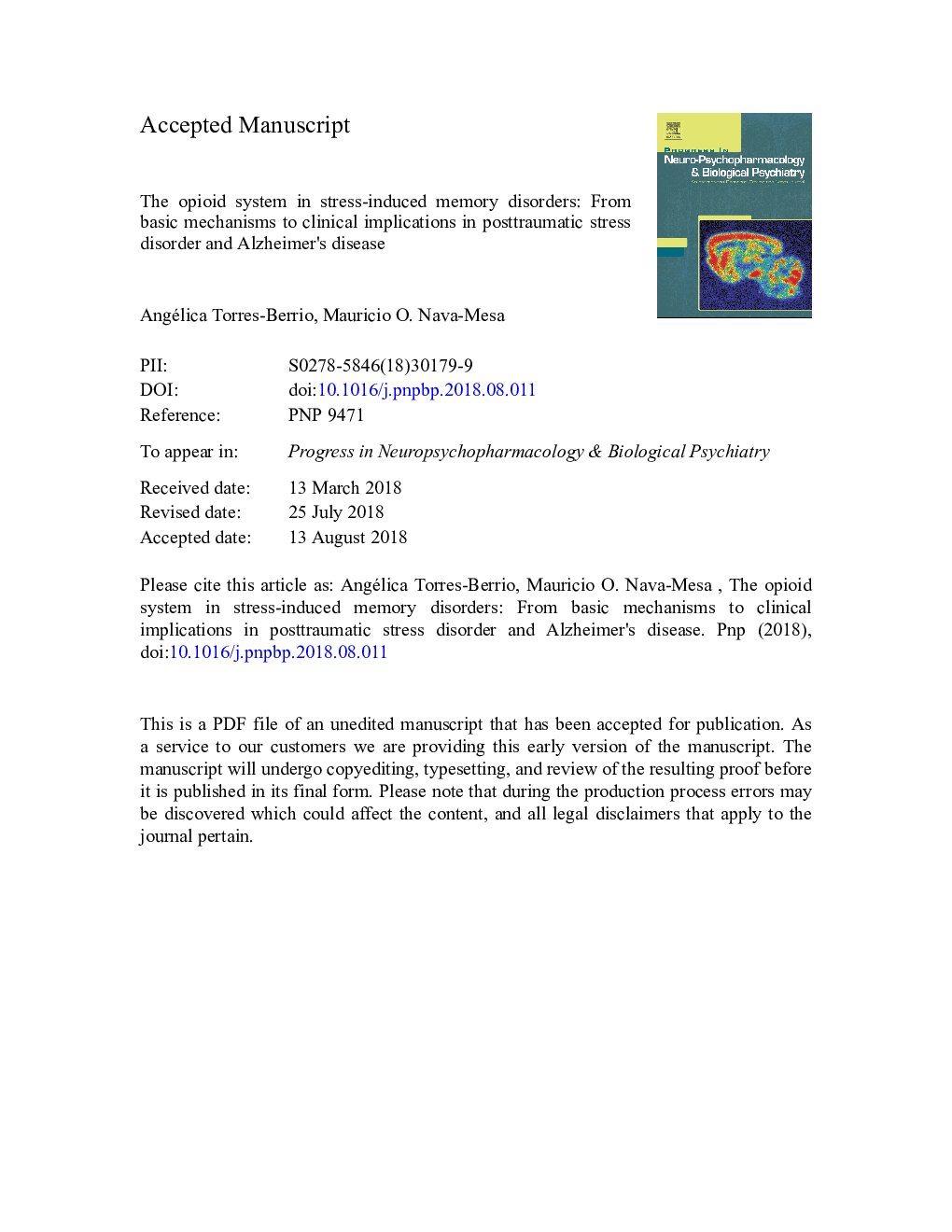| Article ID | Journal | Published Year | Pages | File Type |
|---|---|---|---|---|
| 8537188 | Progress in Neuro-Psychopharmacology and Biological Psychiatry | 2019 | 49 Pages |
Abstract
Cognitive and emotional impairment are a serious consequence of stress exposure and are core features of neurological and psychiatric conditions that involve memory disorders. Indeed, acute and chronic stress are high-risk factors for the onset of post-traumatic stress disorder (PTSD) and Alzheimer's disease (AD), two devastating brain disorders associated with memory dysfunction. Besides the sympathetic nervous system and the hypothalamic-pituitary-adrenal (HPA) axis, stress response also involves the activation of the opioid system in brain regions associated with stress regulation and memory processing. In this context, it is possible that stress-induced memory disorders may be attributed to alterations in the interaction between the neuroendocrine stress system and the opioid system. In this review, we: (1) describe the effects of acute and chronic stress on memory, and the modulatory role of the opioid system, (2) discuss the contribution of the opioid system to the pathophysiology of PTSD and AD, and (3) present evidence of current and potential therapies that target the opioid receptors to treat PTSD- and AD-associated symptoms.
Keywords
Related Topics
Life Sciences
Neuroscience
Biological Psychiatry
Authors
Angélica Torres-Berrio, Mauricio O. Nava-Mesa,
